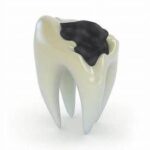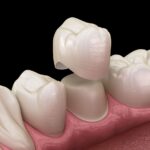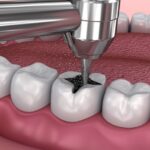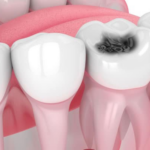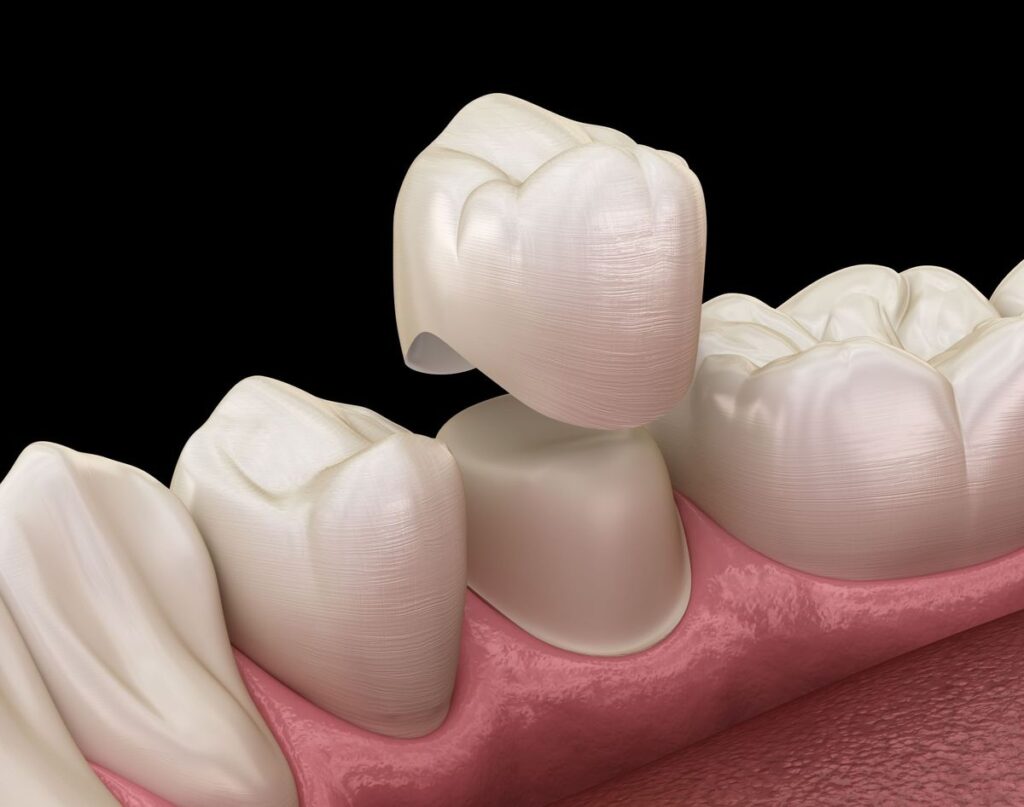
If you’re dealing with a damaged, decayed, or discolored tooth, you may have heard your dentist suggest a dental crown as a solution. But what exactly is a dental crown, and is it the right treatment for your needs?
Let’s explore how dental crowns work, who can benefit from them, and what to expect from the procedure.
What Is a Dental Crown?
A dental crown is a tooth-shaped “cap” that is placed over a natural tooth to restore its shape, strength, and appearance. It completely covers the visible portion of the tooth above the gum line and is cemented in place by a dentist.
Crowns are commonly used in both restorative and cosmetic dentistry and are available in a variety of materials including porcelain, ceramic, zirconia, metal alloys, and porcelain-fused-to-metal (PFM).
When Are Dental Crowns Recommended?
Dental crowns serve multiple purposes. Your dentist may recommend a crown if you have:
1. Severely Decayed Tooth
When a tooth has extensive decay that cannot be repaired with a filling, a crown offers full protection and functionality.
2. Broken or Cracked Tooth
Crowns are ideal for teeth that are fractured or weakened, preventing further breakage.
3. Post Root Canal Treatment
After a root canal, the tooth becomes fragile and more prone to fracture. A crown helps protect and preserve the tooth structure.
4. Large Filling Replacement
If a tooth has had multiple or large fillings that compromise its structure, a crown may be needed for added strength.
5. Cosmetic Enhancement
Crowns can improve the appearance of teeth that are misshapen, discolored, or poorly aligned.
6. Dental Bridge Support
Crowns are used to anchor dental bridges that replace one or more missing teeth.
7. Dental Implants
A crown is the visible part of a dental implant restoration, providing the appearance and function of a natural tooth.
Types of Dental Crowns
Depending on your clinical needs and aesthetic goals, your dentist may recommend:
- Porcelain or Ceramic Crowns – Best for front teeth due to their natural look.
- Zirconia Crowns – Durable, biocompatible, and suitable for both front and back teeth.
- Metal Crowns (Gold or Alloys) – Extremely strong and often used on molars.
- Porcelain-Fused-to-Metal (PFM) – Stronger than all-ceramic but may show a dark line near the gums over time.
What to Expect During the Procedure
Getting a dental crown typically involves two appointments:
First Visit:
- Your dentist examines the tooth and takes X-rays.
- The tooth is shaped to make space for the crown.
- An impression is taken to create a custom-fit crown.
- A temporary crown is placed while the permanent one is made in a lab.
Second Visit:
- The temporary crown is removed.
- The permanent crown is checked for fit and appearance.
- It is then cemented into place.
Thanks to digital dentistry, some clinics offer same-day crowns using CAD/CAM technology.
Pros and Cons of Dental Crowns
Pros:
- Strengthens weakened or broken teeth
- Restores natural function (biting and chewing)
- Improves aesthetics
- Durable (can last 10–15 years or more with care)
Cons:
- Requires reduction of natural tooth structure
- May cause temporary sensitivity
- Can chip or loosen if not maintained
Are Dental Crowns Right for You?
Dental crowns are ideal if:
- You want to restore a damaged tooth
- You’ve had a root canal or large filling
- You’re looking to improve your smile aesthetically
- You want long-term durability in a tooth restoration
They may not be suitable if you have:
- Severe gum disease or active infections
- Poor oral hygiene habits
- Insufficient tooth structure for support (may require a post or alternative treatment)
Your dentist will evaluate your case and help you choose the best material and design based on the location of the tooth, your bite, and aesthetic needs.
Conclusion
Dental crowns are a reliable and effective way to restore damaged teeth, improve appearance, and protect your oral health long-term. Whether you need protection after a root canal or want to enhance the look of your smile, crowns may be the ideal solution.
With a reputation for precision and patient-centered care, Dr. Nupur is a trusted name in cosmetic and restorative dentistry in Wakad, Pune. At Dentique Dental Clinic, she blends advanced techniques with a gentle approach to deliver crown treatments that not only restore function but also enhance the natural beauty of your smile. Whether you’re dealing with decay, damage, or cosmetic concerns, you’re in expert hands.
